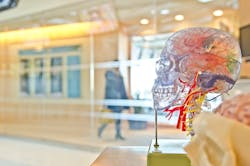A new database will collect information from clinicians about COVID-19-related neurological symptoms, complications, and outcomes as well as COVID-19 effects on pre-existing neurological conditions, according to a press release from the National Institutes of Health (NIH).
The COVID-19 Neuro Databank/Biobank (NeuroCOVID), which was created and will be maintained by NYU Langone Health, New York City, will be a resource of clinical information as well as biospecimens from people of all ages who have experienced neurological problems associated with SARS-CoV-2 infection. The database is supported by the NIH’s National Institute of Neurological Disorders and Stroke (NINDS).
Healthcare providers and participating clinical sites across the United States are invited to use the web-based data portal to submit de-identified information into the database, along with relevant biospecimens collected during research studies or from previous clinical procedures and tests.
Information to be collected in the database includes neurological symptoms, comorbidities, disease course, complications, sequelae, and outcomes. A Global Unique Identifier (GUID) will be used to recognize data and biospecimens from each individual with no personally identifying information collected or stored in the database.
NeuroCOVID can be accessed by scientists for research studies on preventing, managing, and treating neurological complications associated with COVID-19. The database may provide insight into how COVID-19 affects the nervous system, and how common, or rare, such complications are.

